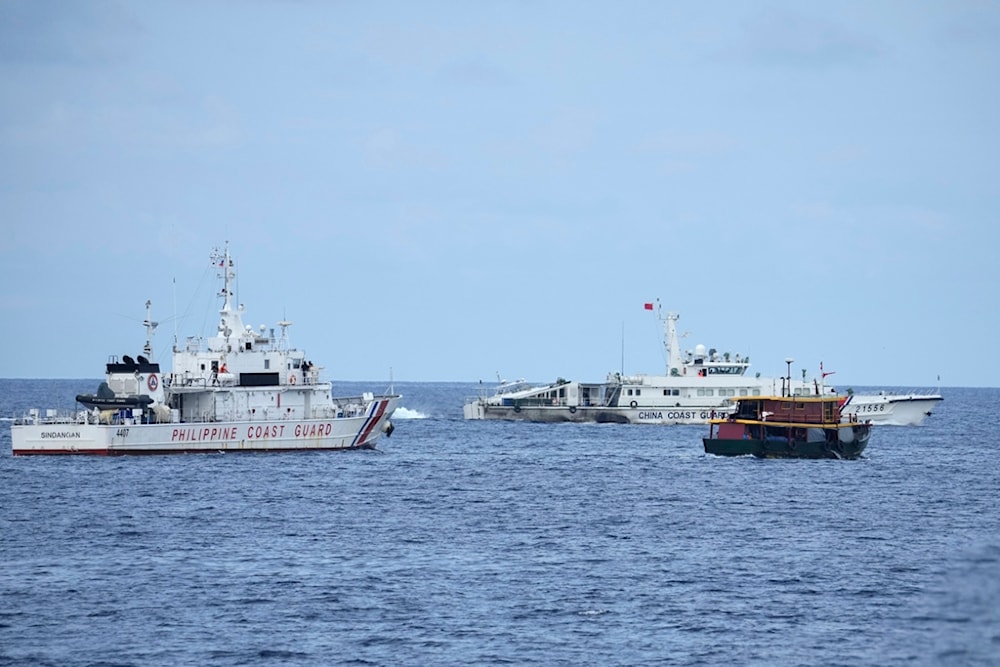US, Philippines conduct joint military exercises in South China Sea
This marks the third military exercise conducted by both countries in collaborative efforts, increasing provocations against China.
-

A Philippine Coast Guard and a supply boat maneuver as a Chinese Coast Guard ship tries to block its way near Second Thomas Shoal, at the disputed South China Sea on Tuesday, Aug. 22, 2023 (AP)
The Philippines and the United States conducted a joint military drill on Friday in the South China Sea in a series of military exercises to expand the Philippines' military presence in the region.
This marks the third military exercise conducted by both countries in collaborative efforts, increasing provocations against China, which regards the US presence in the region as an interference in Chinese and regional affairs.
Filipino Armed Forces Chief Romeo Brawner stated that the joint drill "demonstrates our commitment to a free and open Indo-Pacific, and fosters close cooperation towards further enhancing our maritime capabilities."
Ever since the US and the Philippines launched joint military naval exercises, bilateral relations between China and The Philippines saw sharp declines, adding to the existing tensions and territorial conflicts.
Read more: China launches 'routine' South China Sea patrols amid tensions
What about the Chinese-Filipino agreements?
However, Chinese and Philippine officials settled on pursuing closer dialogue to deal with "maritime emergencies" in the South China Sea, including the hotly contested Second Thomas Shoal, Beijing stated.
Following a series of incidents involving vessels from both countries, the two countries' relations have been facing a sharp decline, noting that they have a long history of maritime territorial disputes in the waterway.
The Second Thomas Shoal, or Ren'ai Shoal according to Beijing, has a grounded naval vessel stationed by Manila to "assert" its territorial claims. This resulted in very intense confrontations between both countries.
China's Foreign Ministry emphasized that both sides agreed "that maintaining communication and dialogue is essential to maintaining maritime peace and stability," adding that both countries will improve their "maritime communication mechanism" in an attempt to handle maritime emergencies more efficiently especially "the situation on the Ren'ai Shoal."
In parallel, Manila stated that the two countries "agreed that continuous dialogue is important to keep peace and stability at sea" and "assured each other of their mutual commitment to avoid escalation of tensions."
Read more: China warns against 'NATO-like' alliances in Asia-Pacific

 2 Min Read
2 Min Read








